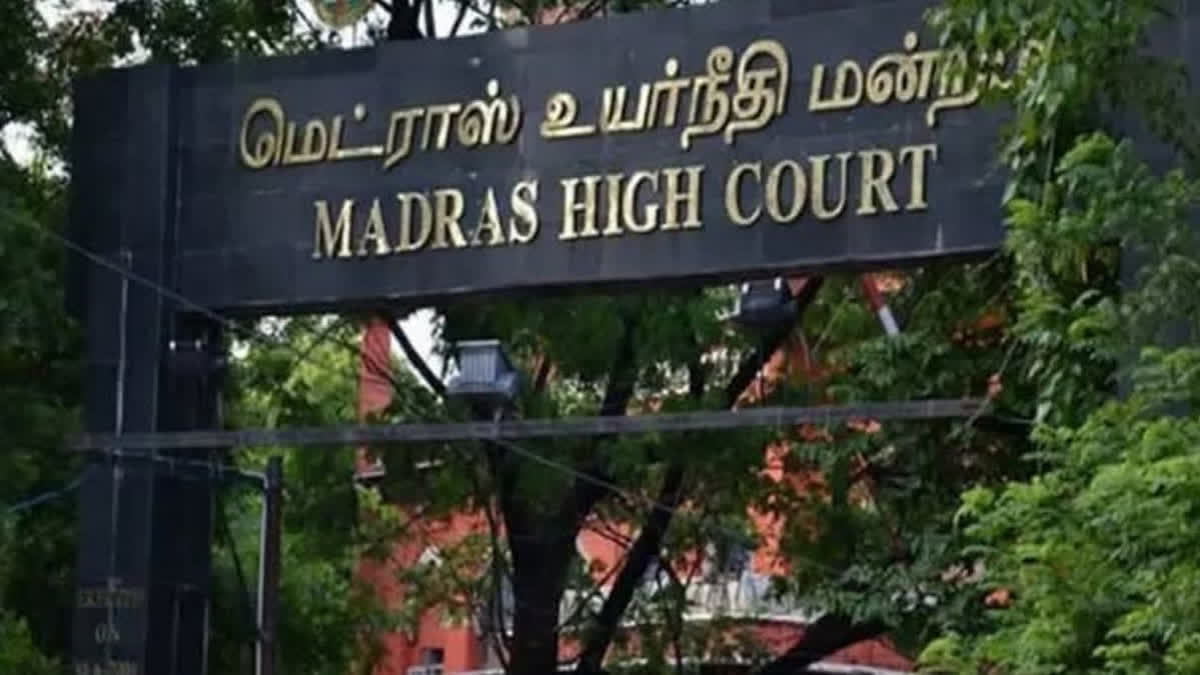Chennai: Debunking the claim of the hereditary priesthood, Madras High Court on Monday ruled that the role of archakas performing service in temples is a secular activity and hence their appointment has to be based on merit and competence of a candidate, well versed and properly trained to perform poojas conducive and appropriate to the worship of the particular deity.
Disposing of a petition challenging the advertisement calling for the position of archaka/sthanika at the Sri Sugavaneswarar temple in Salem city, Justice N Anand Venkatesh made it clear that caste-based pedigree has no place in the appointment of sthanika (resident priest). In the absence of Trustees, the judge allowed the Executive Officer of the temple as the 'Fit Person' to go ahead with the process of appointing a suitable person to the post of archaka/sthanika.
The petitioner, Muthu Subramania Gurukkal, a hereditary priest after his grandfather, cannot invoke the hereditary right to stake his claims but can participate in the selection, the judge observed in the landmark judgment. Citing the supreme court verdict in the Seshammal Vs State of Tamilnadu case, it was pointed out that even in a denominational temple, the appointment of archaka can never be claimed as a hereditary right.
Also read: Setback for DMK Govt: HC strikes down appointment of non-Brahmin priests
“The Apex court frowned upon insisting on a pedigree based on caste to perform the rites and rituals in a temple. This is a further reiteration of the principle that the Archaka performing service in the temple falls under the secular part,” the judgment read.
“The Apex Court held that the appointment of an Archaka is a secular function and hence there is no question of claiming any hereditary right. However, the Archaka is expected to be a well-versed and accomplished person in the Agamas and rituals necessary to be performed in a temple performance of a religious service is an integral part of the religion whereas the Priest or the Archaka performing such service is not so. The Apex Court differentiated between the religious portion and the secular portion and held that religious service by the Archaka is the secular part of the religion and the performance of the religious service is an integral part of the religion. Ex consequenti, any person belonging to any caste or creed can be appointed as Artchaka, provided he is a well-versed and accomplished person in the Agamas and rituals necessary to be performed in a temple,” the judge reasoned.
Giving the go-ahead for the appointments to be made under the Hindu Religious Institutions Employees (Condition of Service) 2020 Rules, the judge upheld the advertisement dated January 18, 2018, the court dismissed the contentions of the petitioner claiming that the position of sthanika is a hereditary one and that his family has been engaged in the service from time immemorial. The judge also ruled that the appointment of priests cannot wait till the disposal of the petition on ascertaining the agamas of each temple in the state.



